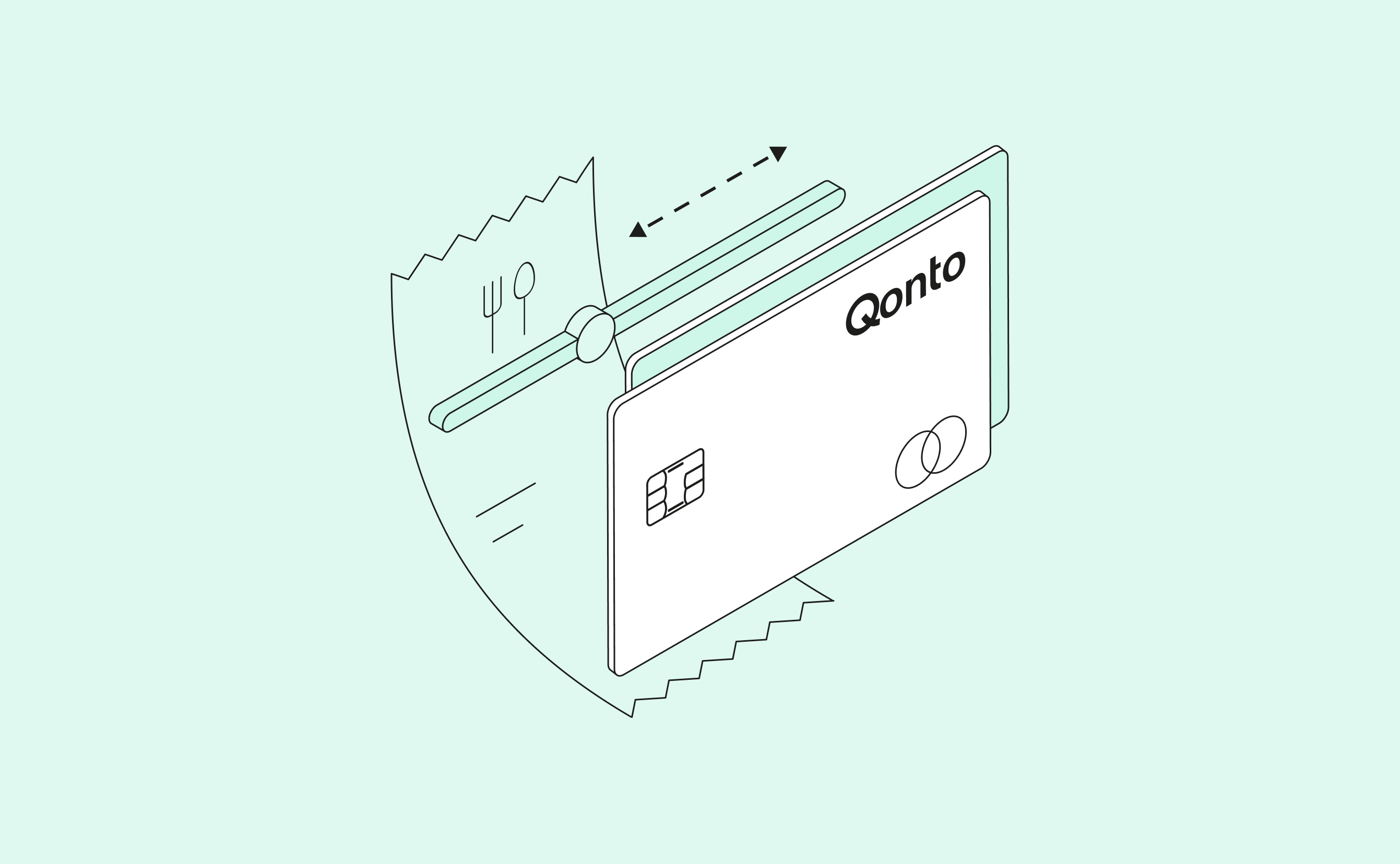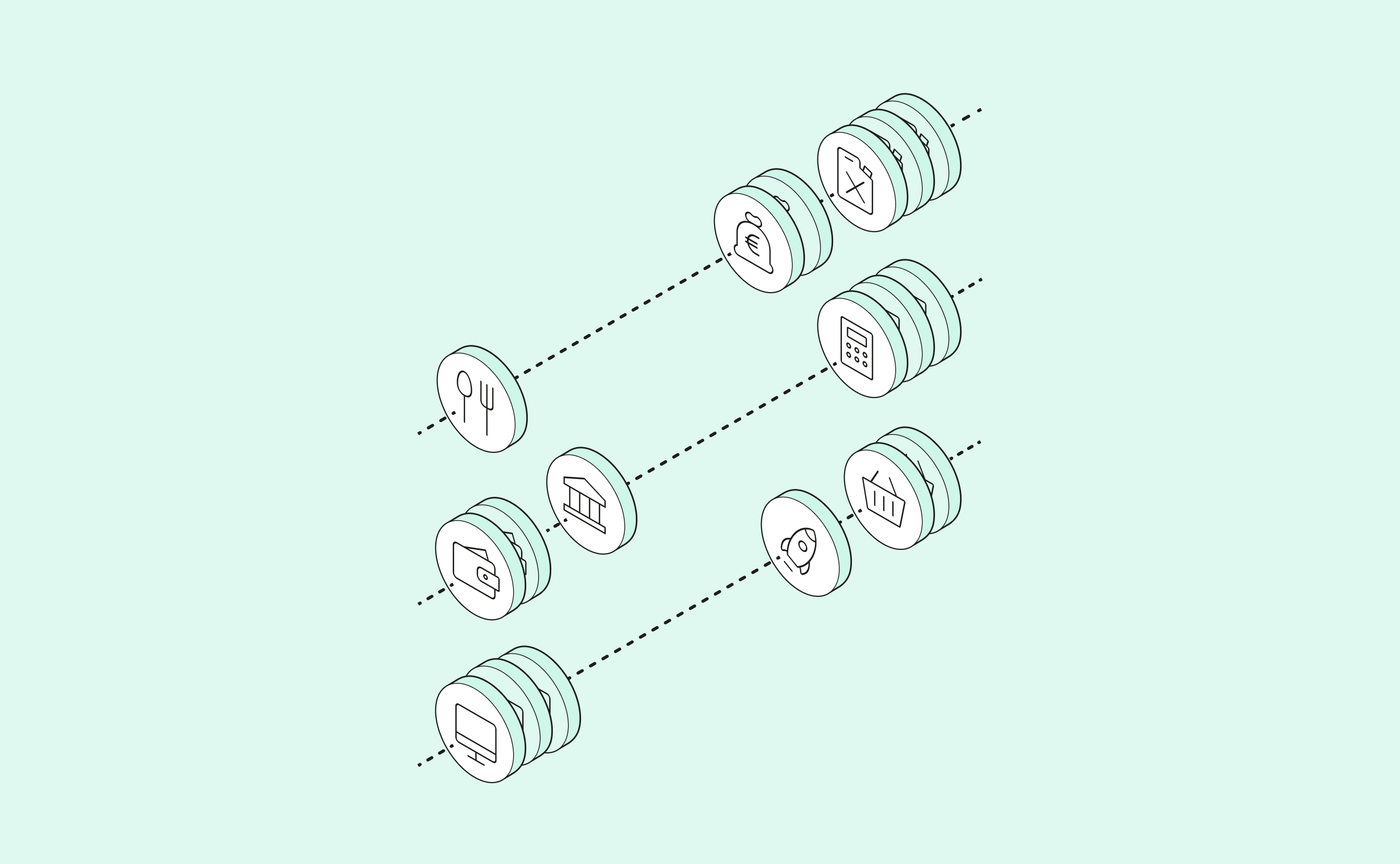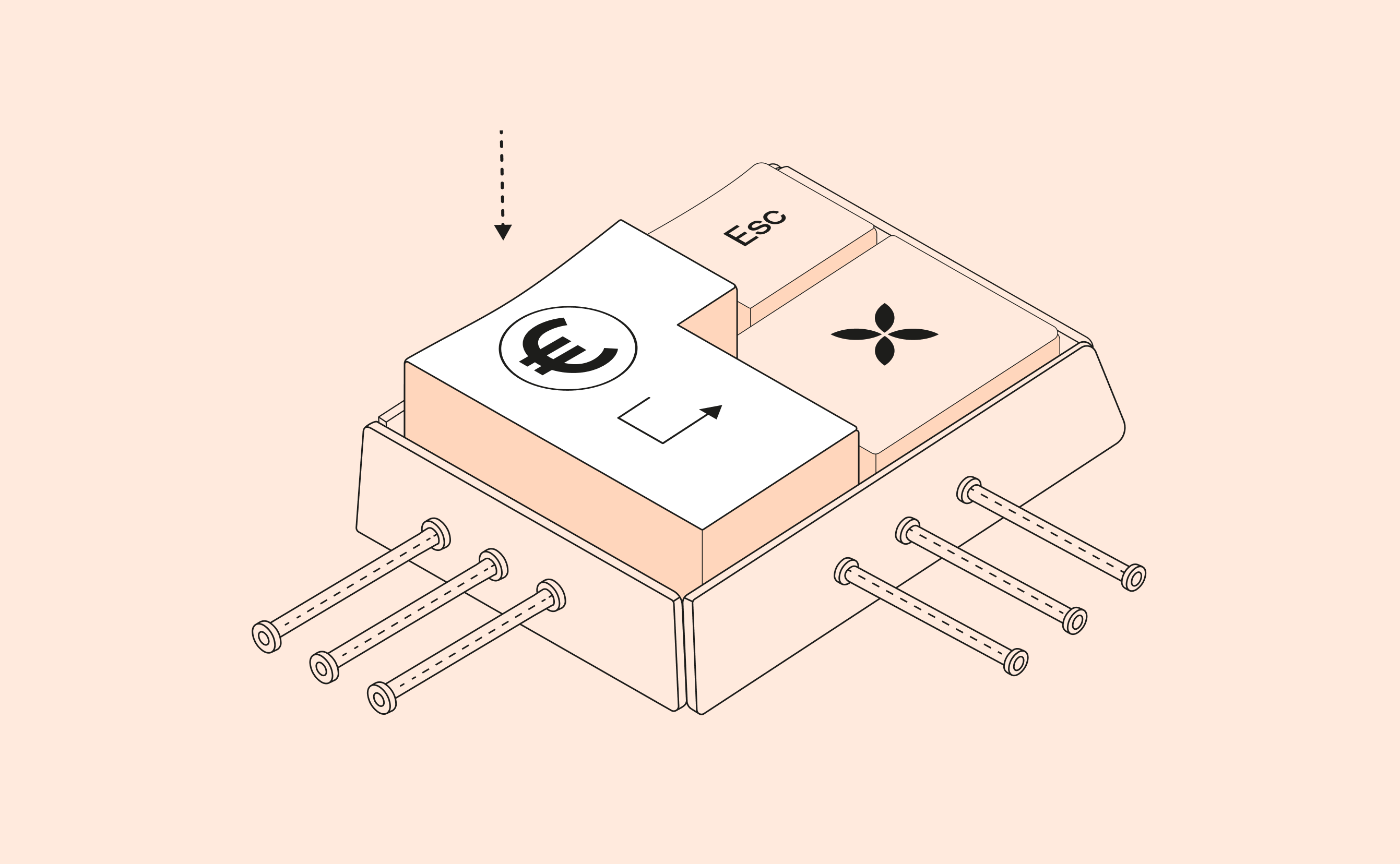One of the deciding factors between a successful and failing business is good accounting. Managing your expenses and having a clear picture of how your money comes and goes is crucial to maintaining a reliable income. This is especially true for small business owners who may have to do their own accounting, or will be responsible for the majority of it.
Essential accounting advice for small businesses – 8 tips

Separate business and personal expenses
The first thing you should make sure of is that your business and personal expenses are kept separate. Mixing the two can cause confusion over which lunch was a personal one and which one you paid for to meet with a new client, whether the stationary you purchased was for the office or your personal hobby.
Always keep an eye on your finances – with the Qonto business account.
Choose an accounting method
There are two accounting methods from which business owners can choose. Regardless of which one you find works best for you, the important thing is that you remain consistent with your method once you’ve chosen. Mixing methods can cause problems with the tax authorities in your country and will be confusing for you.
Cash method
A popular method for its simplicity, the cash method is about calculating gross income adding together all types of business-related income each year. You add all cheques, cash, and property value together as representative of earnings that year.
Accrual method
The accrual method is slightly more complex because the income reported is related to the events fixing the right to receive it. So if you pay for a conference in 2016 which you then attend in 2017, you would report the expense as 2017, the year you attended it.
Categorise business expenses
You inevitably incur costs as a business owner, so the more clearly you delineate these expenses, the better picture you’ll have of your business. Creating a comprehensive list of expense categories will help you to identify which types of expenses are costing you the most and which ones are fluctuating year to year. You can then maintain individual attention to each category instead of sifting through one big lump of annual payments.
- Rent or mortgage payments (home or office)
- Office equipment
- Advertising and marketing campaigns
- Software expenses
- Networking and work-related social events
- Vehicle expenses
- Staff payroll
- Insurances
- Licences and permits
- Courses, training, and education
Prepare for big expenses
Major expenses are a part of the inevitable expenses you incur running your own business. The key to managing big expenses is to minimise where possible and always have cash reserves. The kinds of major expenses you have will depend on the nature of your business, but there are a few major ones which can be minimised and prepared for with the right approach.
Rent
Renting an office space will likely be a major and regular expense. To make sure this kind of expense doesn’t cause problems for you and your business, assess your need for an office. Can you manage your business from home, with remote workers? How big does your office space need to be? Is location important or can you save by renting an office space in a cheaper area?
Staff wages
If you employ staff, paying full timers proper wages will be a significant expense you have to manage. Assess how much you are capable of performing yourself without being overworked and affecting the quality of your output. Can you also outsource tasks to freelancers instead of hiring full-time staff?
Office supplies and equipment
Determined by the nature of your business, your supplies and equipment can be costly. Negotiating with vendors for more reasonable prices can help bring down the costs in this area, and is a necessary skill for business owners to learn. Make sure you research for the highest quality equipment as well, because cheap equipment that keeps failing will end up being a bigger cost than if you’d paid for something reliable in the beginning.
Emergency fund and insurances
Your emergency fund should be one of your biggest cash reserves. Where you are based may also play into how much money you need to put aside. If you live in an area highly prone to cyclones or other weather-related disasters, you may have to pay more for insurance and put aside more money. The same goes for cities with high crime rates, or even having your business in a fickle or very competitive market.
Keep your books up to date
Up to date books will give you the clearest picture of the state of your business. Without balanced books, certain expenses and income won’t be reported and will give you a distorted picture of your financial situation, leading to decisions made without full knowledge of your situation.
Keep your receipts
Make sure you have separate storage methods for receipts both physical and digital.Your receipts are your most prized possessions as a small business owner and you will want to have them readily accessible. Obtain both physical and digital copies if possible and back them up on your chosen cloud software as well as an offline hard drive.
Stick to tax deadlines
Set reminders, pin up notes on your office wall, tell your friends and family to remind you—whatever it takes to keep abreast of July 31st, the tax deadline in Germany. Doing your taxes on time will save your business from an ugly investigation by the tax authorities. This can be costly and damaging to your business’s reputation. Don’t let it happen.
Get bookkeeping software
Bookkeeping and accounting software will slash the time required to keep track of your books and automate a great deal of the more complex tasks required in bookkeeping. When selecting bookkeeping software however, do your research. Some softwares are suited for certain tasks more than others and many have a steep learning curve so you will need to set aside time to learn the software.
Xero
Ideal for ‘micro-businesses’, Xero is a simple accounting software with a clean interface and option to integrate third party services. You can collect payments from clients online thanks to Xero’s integration with Stripe and GoCardless. Early subscription plans, which start at $12 USD a month, allow 20 invoices and five bills per month, making it an ideal starting plan for the beginner.
Freshbooks
Freshbooks is known for its suitability to service-based businesses. More customisable than other accounting software options, Freshbooks is all about invoicing. Send, receive, print, and pay invoices, with newly added features for basic bookkeeping as well. Your subscription plan with Freshbooks will depend on how many invoices you need to process and send per month. Monthly payments start at $6 USD per month, with a discount option for your first six months and further discount if you choose to pay early.
Good accounting makes a stronger business. If you balance your books, do your taxes on time, and keep track of expenses, you’re much more freed up to focus on providing top quality services for your clients and producing the best products. Hopefully, the above suggestions assist with making you better equipped to handle your accounting as well as running your own business.
- Open a business banking account in addition to your personal account
- Assess the cash and accrual methods of accounting and choose which works best for you
- Create a detailed list of expense categories
- Identify your biggest expenses, work to minimise them, and always have cash put aside for emergencies
- Tend to your books 15 minutes per day, instead of letting the work build up
- Save your receipts in both physical and digital form, online and offline
- Make sure you never forget July 31st as the deadline for your tax return
- Assess different accounting software and decide which one is right for your business type





